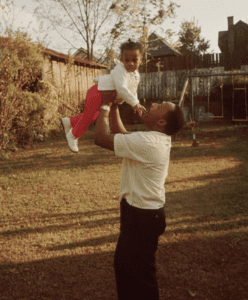Learning to Grieve Well

Grieving affects all aspect of our life, and getting through a day, can seem overwhelmingly complicated. Paradoxically, finding a way to live with the pain of grief enables us to heal. Effectively coping is to alternate between enduring the pain as it hits us and having a break from it through distraction, busyness, and doing things that comfort and soothe us. We slowly allow ourselves to adjust to the hard reality that our loved one has died. Listed below are some ways to support and enable us to rebuild our lives after loss.
Honor your relationship with the deceased.
Perform regular rituals that continue your relationship with the person who died. Some routines that have proven helpful include:
- Wear something that connects you to them
- Visit their grave.
- Create a memory box or a photograph album.
- Writing to them in a journal or the form of a letter
- Cook their favorite recipe.
- Post an image online that you know they’d have loved.
Listen to your own needs and be kind to yourself.
When hurt and anger are not expressed, it often takes the form of self-attack. Journal to process the many different and confusing messages going on in your mind be aware of the defense mechanisms you are using to cope with this new reality. Are they helping and are they healthy? What other ways can you deal with the pain that are less harmful? Do you shut down when you are upset? If so, are you getting the support you need? Denial in grief is a natural part of self-protection, psychologically we couldn’t cope with the full knowledge all at once. Continued denial, however, is not helpful. Be aware that new losses often trigger previous losses. We aren’t going mad – it is normal.
Find ways to express your grief.
There is no right way to express it; it is unique to the individual. It may involve talking to family or friends, writing a journal, playing or watching sport, or painting, making music, seeing a therapist. Find a way of connecting to the feelings we have inside us by naming your feelings and then finding a way to express them positively.
Allow time.
Grief impacts time in several ways.
- It often makes us feel powerless and therefore makes decision making difficult. Time needs to be allowed for the necessary reflection so that regret can be avoided.
- Grief takes time and varies by individual. There is no one way to grieve and no timetable. We cannot avoid it or rush it. It is helpful to remember that over time, the intensity of the pain will lessen and we will adjust to our new normal.
Nurture your mind and body.
We know from neuroscience, the mind and body are interconnected. Every thought we have has a physiological component and felt within our body. The pain of grief often feels like fear which triggers our body into a state of heightened arousal. Ways to regulate this sense of hyperarousal include cardiovascular exercise, healthy, regular eating, limiting sugar, coffee and booze intake, and prayer or mindfulness practices.
Set limits with others who may be trying to help.
Others can get involved when we are grieving in an attempt to help, but no one else can know what our limits are. It is up to us to decide on our limits and voice them clearly.
Maintain some structure in your life.
Having a simple plan for each day that you attempt to stick to is extremely helpful in containing the emotional turmoil. Developing a structure of good habits has the multiplier effect, the more we do them, the better we feel.



